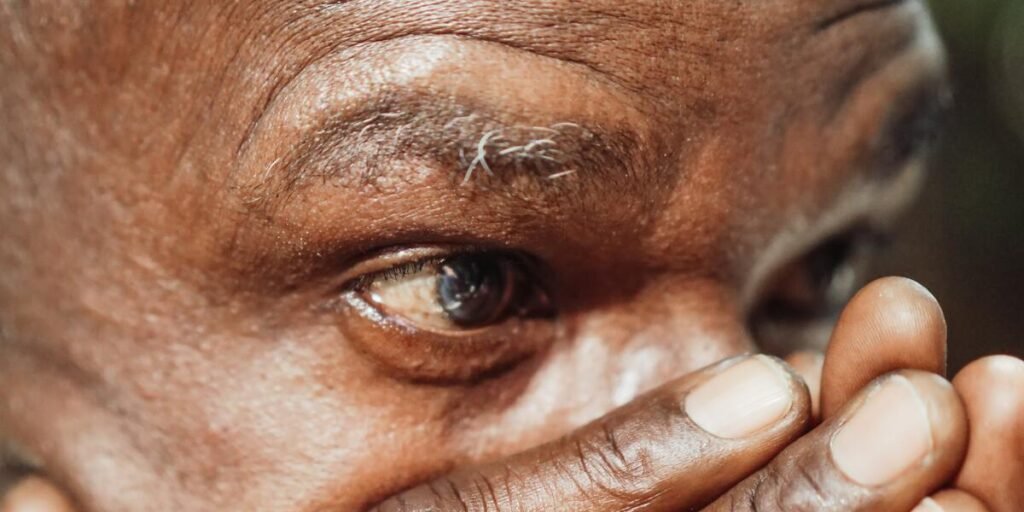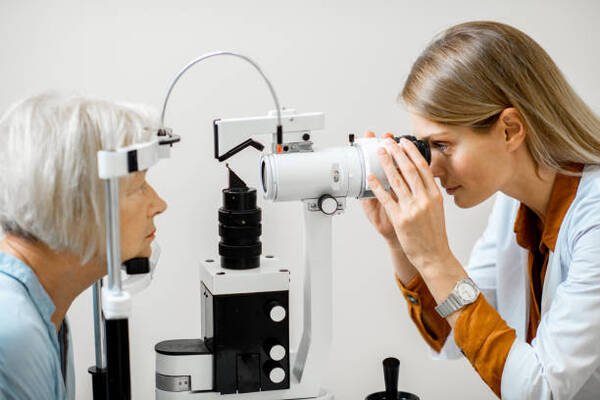
Common Eye Diseases and Eye Care For the Elderly
As people age, their vision will also change. The changes in the eyes may make the elders worried. Therefore, it is important for them to understand common eye diseases. Perhaps you can help the elders in your family prepare for future conditions. .
- Dry Eye Syndrome
Dry eye syndrome is a common symptom. For the elderly, dry eye syndrome (insufficient tears or low-quality tears) occurs when the tear glands cannot secrete tears properly. At this time, the eyes do not receive enough moisture and may become red. , and your eyes may feel burning and itchy. Although the possibility of an elder losing vision is extremely low, the possibility cannot be completely ruled out.
Dry eye syndrome can make it difficult for elders to read or use computers. Doctors may recommend that elders use special air humidifiers or eye drops to keep their eyes moist. If you have severe dry eye syndrome, your doctor may prescribe stronger medications or recommend surgery. Remember to remind your elders to follow the doctor’s instructions. - Low vision
If your elder has poor vision, it will be difficult for them to perform daily activities such as reading, walking, cooking, and watching football games, even with glasses or contact lenses, medications, or other treatments. However, modern medicines can help the elders in your family live peacefully with the disease. - Age-related Macular Degeneration,AMD
People with this condition are unable to see in the center of the image. Age-related macular degeneration, one of the most common causes of vision loss, can cause damage to specific parts of the eye that are important for sharp vision and central vision. If damaged, it will become impossible to look directly at objects in front of you.
Medications, injections, special therapies, or laser surgery can all be used to treat age-related macular degeneration, but the exact treatment depends on the severity. - Cataracts
Cataracts are clouding of the lens that affects vision. Cataracts mostly occur in the elderly. Symptoms may occur in one eye or both eyes, but the infection will not spread between the two eyes. Cataracts can be treated with glasses, contact lenses, or surgery. - Glaucoma
When intraocular pressure is too high, it can lead to glaucoma. If the fluid in the eye flows abnormally, the intraocular pressure will increase, thus damaging the optic nerve of the eye. If left untreated, it may cause visual loss or blindness. However, glaucoma has no obvious early symptoms. The best way is to Let the elders in the family receive regular check-ups. Glaucoma can be treated with prescription medications, including eye drops or oral medications.
Take your elders for regular eye examinations
Eye examination is very important. If an elder in your family wears glasses, an eye examination can check whether the glasses are suitable for the elder’s current condition. Eye exams can also let you and your loved ones know if there are other eye problems. Eye examinations can help detect whether an elder has glaucoma, cataracts, or other health problems that may affect vision, such as diabetes or high blood pressure. In addition, general medical institutions or outpatient health centers provide eye examination services. You can choose a suitable examination location according to your own schedule or needs, and discuss with your elders the examination method they want.

Create a safe home environment for the elderly
If an elder in your family has visual loss, it is important to provide them with a safe home environment. Because they cannot see clearly, they are more likely to fall and are at risk of injuries such as burns, cuts, or electric shocks.
4 tips for eye care
Eye care is essential, especially when the elders are very old. You can help your elders take care of their eyes, and here are some simple things you can do
- Eat good food. Diet is very important. A healthy diet can help protect your eyes. You can plan a balanced diet for your elders and make sure there are enough fruits and vegetables on the menu.
- Sunglasses are important to protect your eyes from UV rays in the sun.
- Maintain an exercise habit. Exercise can promote blood circulation throughout the body, and because everyone can benefit from exercise, you can also exercise with your elders so that you can take care of your eyes together.
- Have a good night’s sleep. Good sleep quality is very important, because eye movements at this time can eliminate bacteria, smoke and other foreign matter.
Additionally, it is important to use good lighting because good lighting takes the work off your eyes so they don’t have to work hard to see in the dark. You can increase the lighting in the room and buy lamps for seniors.
Eyes help people complete daily activities and see the world, but as people age, their vision changes. Still, you can help your seniors manage aging-related eye problems and protect their eyes from further damage












